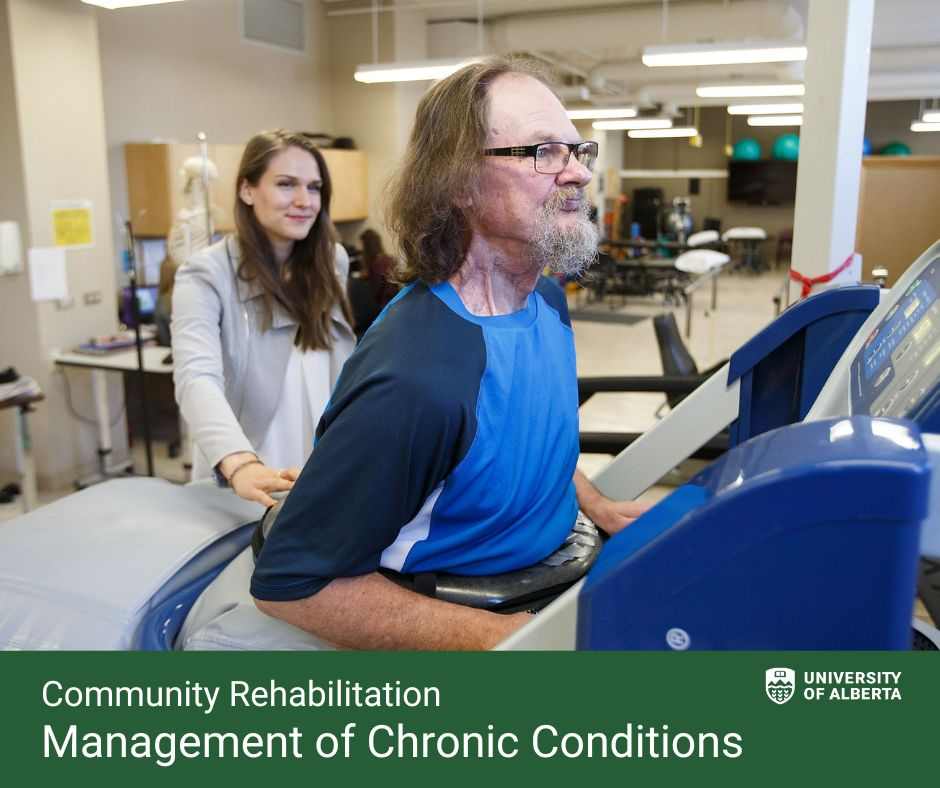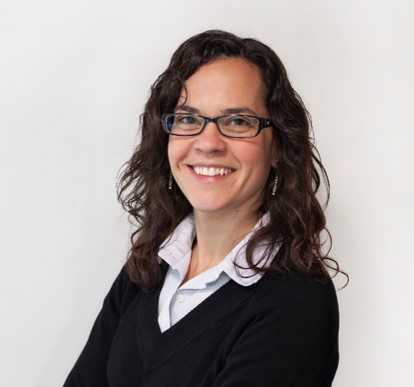Community Rehabilitation - Allied Health Management of Chronic Conditions

In this course, the learner will explore updates in the rehabilitation care and support/monitoring for those with chronic conditions such as Frailty, Arthritis, COPD, and Long-COVID. This course is taught in a remote format of online lectures, knowledge checks, case studies and virtual instructor interaction.
Now registering for the course running September 16 - October 25, 2024
Join our email list to receive new course and deadline updates! 📧
Course Goals
- Review the pathophysiology and clinical presentation of select chronic conditions.
- Highlight key components of rehabilitation assessment for selected chronic conditions.
- Provide learners with up-to-date and evidence-based interprofessional management
strategies for select chronic conditions. - Demonstrate how technology can be used in the assessment and/or treatment of
chronic conditions.
Course learning objectives
- Discuss the pathophysiology, prevalence, and clinical presentation of frailty, arthritis, COPD and Long-COVID.
- Identify key components of the rehabilitation assessment, including objective measures appropriate for specific chronic conditions.
- Demonstrate an understanding of the rehabilitation strategies, education, and training of clients with chronic conditions from an interdisciplinary lens.
- Explain how technology such as telerehabilitation or mobile applications can be used in the assessment and treatment of clients with chronic conditions.
- Apply theory learning to practical case study examples.
- Discuss the pathophysiology, prevalence, and clinical presentation of frailty, arthritis, COPD and Long-COVID.
- Identify key components of the rehabilitation assessment, including objective measures appropriate for specific chronic conditions.
- Demonstrate an understanding of the rehabilitation strategies, education, and training of clients with chronic conditions from an interdisciplinary lens.
- Explain how technology such as telerehabilitation or mobile applications can be used in the assessment and treatment of clients with chronic conditions.
- Apply theory learning to practical case study examples.
COURSE HOURS
The course is approximately 1 credit equivalent (13 content hours). However, you should expect to spend somewhere between 18-35 total hours on the course (varies depending on the individual). We do equate the course on the high end of that and 35 educational hours appear on the digital certificates that are issued after course completion
*If you are an allied health staff member with Alberta Health Services and you support University of Alberta Faculty of Rehabilitation Medicine student placements (e.g. preceptor, site coordinator) you may be eligible to receive complimentary registration for this micro-course. Contact alliedhealth.education@ahs.ca for more information.
*If you are a current (2023-24) Faculty of Rehab Medicine (FRM) Affiliated Clinical Educator you may be eligible to receive a 15% discount for this micro-course. Contact frmcpe@ualberta.ca for more information.

Course facilitator
Gabriela Abbud is a physiotherapist and has worked as an Assistant Teaching Professor with the University of Alberta at the Calgary Satellite since 2016. She has clinical experience in acute care, outpatient neurological rehabilitation and chronic disease management, return to work and transition hospitals. She is involved in teaching several different topics in the MScPT program and is the Clinical Education Coordinator at the Calgary Satellite.
More Information
Apply at:
$250 Course Fee:
A 100% refund of the $250 course fee is available to students who withdraw before the first day of the course. Withdrawal requests during the first 3 weeks of the course will be refunded 50% of the registration fee. After 3 weeks (mid-point of the course) no refund will be provided.
The course content is delivered 100% asynchronously meaning there is no requirement to be online at a specific class date and time. Participants can complete the learning activities in a place and time of their choosing. Content is accessible twenty four (24) hours-a-day from any location with an internet connection.
There are no grades for this course. Instead, students receive a complete or incomplete score based on satisfactory completion of the course. To complete the course students are required to work through all learning activities and achieve 60% on all the knowledge check quizzes at the end of each module. Students are given unlimited quiz attempts and can challenge these at any time throughout the course.
Upon successful completion of each module participants will be issued a faculty digital certificate noting the number of educational hours.